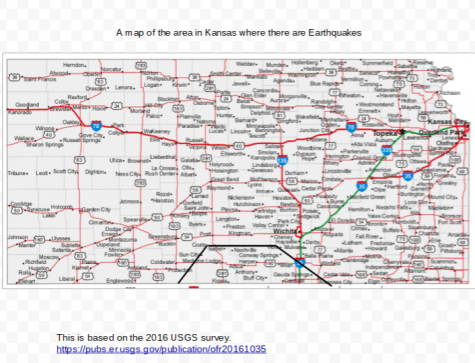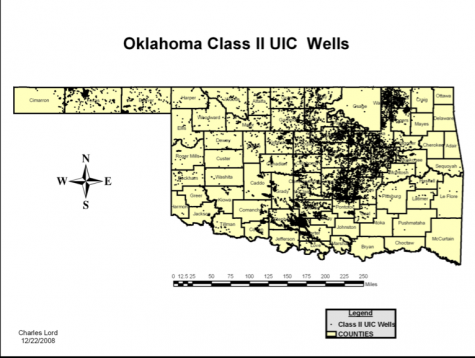Hydraulic Fracturing
April 26, 2016
Hydraulic Fracturing is the method in which fossil fuels are extracted from the Earth by drilling down and pumping water down into the hole. What this does is break apart the minerals and then they extracted through the water. The main use for Hydraulic Fracturing is to extract shale oil so that it can be used for crude oil. This article is to help people understand what Hydraulic Fracturing really is, and to explain the pros and cons of such techniques.
Some pros about Hydraulic Fracturing is that it is able to get at some patches of shale which otherwise would either be inaccessible or very expensive to mine. It has been able to provide a couple billion more barrels of oil which we didn’t think we had. According to Energy In Depth, Hydraulic Fracturing has led to a boost to the American Economy, providing jobs to the unemployed and substantially lowering the unemployment percentage. It also provides us with more oil and this means we don’t have to rely on other foreign countries for fuel. Hydraulic Fracturing looks like a very promising new source of domestic oil, but with Hydraulic Fracturing comes a lot of more problems than it might be worth.
First off Hydraulic Fracturing has been linked to many problems including health problems and man made earthquakes. When the wells are dug into the shale rock they drill open pores into the ground so they could run the water in and out to get the gas. In the water though is many chemicals that help break down the shale. Only 30% to 50% of the water is collected after the well is dried up, and the water is not biodegradable so the water leaks into natural water sources contaminating them. According to the NAGT Fracking has also led to a huge increase of induced earthquakes, making it more likely that there will be earthquakes near fracking wells than near the San Andreas Fault Line. There are over 100 wells in Southern Kansas that have been linked to induced earthquakes, which has been damaging infrastructure and costing us money which we don’t have. There have been thirteen earthquakes at a 2.0. One more earthquake was a 3.0. We are 57 miles from the danger zone for earthquakes.
So although Fracking seems like a very reliable source for domestic energy sources, some of the problems that come with it greatly outweigh the benefits. Hopefully in the future we can think of a way for us to get to shale and extract its valuable resources for use without putting the public’s health in danger. Hydraulic Fracturing leads to increased health complications in towns near wells, increased induced earthquakes, increased pollution levels and makes global warming worse. Hydraulic Fracturing is making our economy better and helping us create new jobs and infrastructure, but are all the problems that come with it really worth it?















